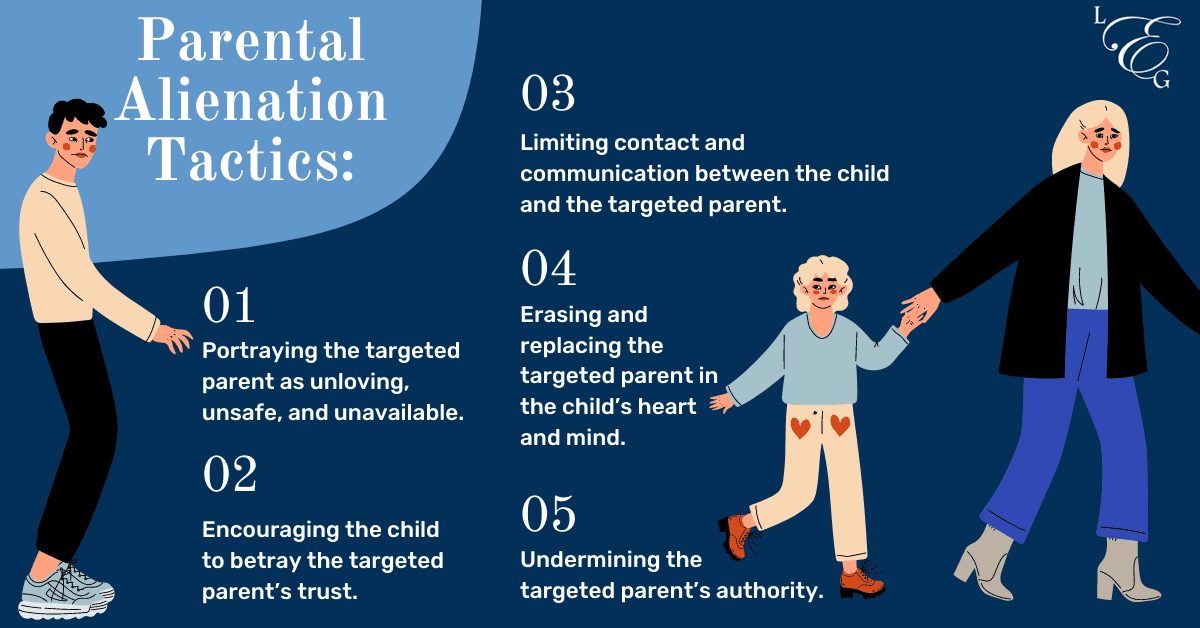When you leave a narcissistic spouse, they may have trouble coping with the end of the relationship. For them, it means losing control and ruining their self-perception. To get back at their partner, they will do whatever they can to destroy them — including using their children as pawns. Narcissistic parental alienation is a common form of narcissistic abuse that narcissists employ to prove their dominance over their ex-spouse.
What is Parental Alienation Syndrome?
PAS or Parental Alienation Syndrome describes an unhealthy relationship between a narcissistic parent and their children against the alienated parent. In this situation, a child will act hostile and reject the other parent.
Parental alienation syndrome is common with narcissistic parents because they believe they are the better parent and deserve more attention, love, and loyalty from their children when compared to the innocent parent.
Narcissistic Parental Alienation Syndrome can be portrayed through a variety of symptoms, including:
- The child judges the targeted parent for their lack of competency and adequacy, often echoing the narcissistic parent’s negative comments about the other parent’s character and abilities. This behavior can lead to the child developing distorted perceptions of the targeted parent, affecting their emotional well-being and creating a rift in the parent-child relationship.
- The narcissistic parent encourages and rewards the child for participating in this behavior, using tactics such as offering special treatment, gifts, or privileges. This insidious form of manipulation reinforces the child’s negative views and further alienates them from the other parent, impacting the child’s mental health and well-being.
- The narcissistic parent will claim they are innocent in the situation, portraying themselves as the victim or the better parent. This behavior is part of their strategy to maintain control and influence over the child’s perceptions, often leading to a complex issue that requires intervention from mental health professionals or legal authorities.
- The child believes that they are forming their own opinions and do not believe the alienating parent has influenced their decisions. This belief is a result of the subtle and often covert manipulation by the narcissistic parent, making it challenging for the child to recognize the emotional abuse they are subjected to. In extreme cases, this can lead to long-term psychological health issues and relationship problems for the child.
Children that are subjected to Narcissistic Parental Alienation Syndrome learn to disrespect, disobey, and disregard their alienated parent. They end up feeling empowered by this because the narcissistic parent rewards them for acting this way. Ultimately, alienated children develop high rates of depression, anger, anxiety, poor mental health, drugs, and alcohol, and relationship difficulties.

What to do if Your Child is the Victim of Narcissistic Parental Alienation
The key here is to not become like the narcissist when confronting them. Don’t counteract the negative comments with more negativity. Instead, tell your child, “I’m sorry your mom said those things about me, they are not true. I love you too much to put you in the middle of this.” Remember, the child is part of both of their parents, and disrespecting one parent over another can damage their sense of identity and self-worth.
Additionally, it’s important to maintain open lines of communication with your child, ensuring they feel safe and supported. Encourage them to express their feelings and reassure them that it’s okay to love both parents. Providing a stable and loving environment can help counteract the negative effects of alienation.
Consider seeking the assistance of a mental health professional who specializes in family dynamics and parental alienation. They can offer guidance and support for both you and your child, helping to navigate the complex emotions involved. Therapy can also be a safe space for your child to process their feelings and develop coping strategies.
Document any instances of alienating behavior by the other parent. Keeping detailed records can be crucial if legal intervention becomes necessary. This documentation can serve as evidence in court to protect your child’s best interests.
Lastly, connect with support groups or other parents who have experienced similar situations. Sharing experiences and advice can provide emotional support and practical strategies for dealing with the challenges of narcissistic parental alienation.
If you need legal assistance dealing with a narcissistic parent impacting your child custody case, call Edens Law Group, LLC at for compassionate counsel.









